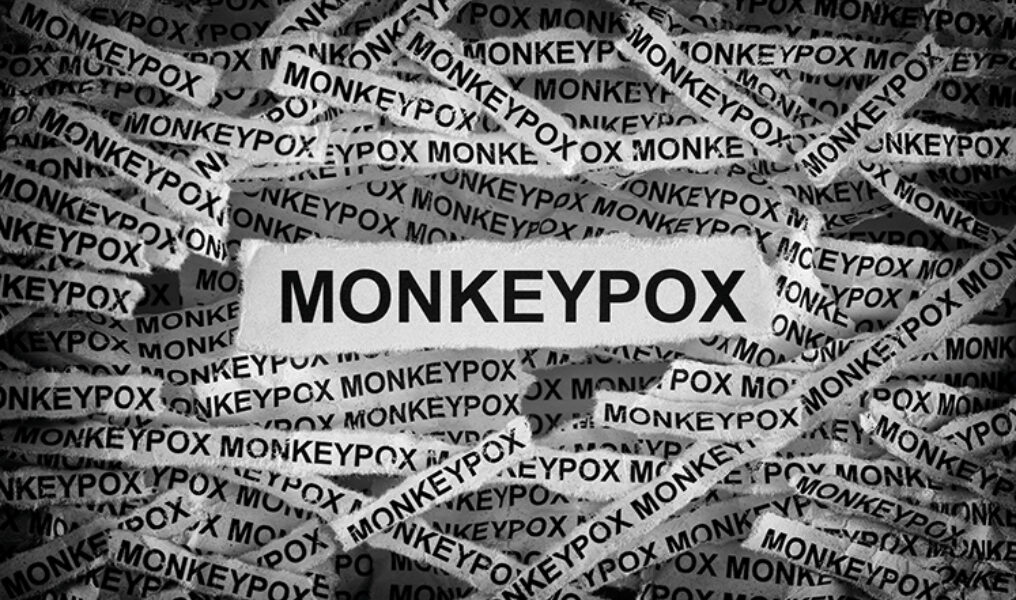Michigan Health Experts on Why Claiming That Monkeypox Is a 'Gay Disease' Could ‘Cause More Harm in the End’
For some gay men, the rhetoric echoes harmful media messaging from the 1980s AIDS crisis

While anyone can get monkeypox, the mainstream media — and some very right of mainstream media — have been reporting that the disease is showing up in larger than average numbers in gay men. This news, local HIV/AIDS advocates say, needs to be presented to the public carefully. Basically, no, monkeypox is not a “gay disease.”
Leon Golson is the prevention manager for Unified – HIV Health and Beyond’s Ypsilanti office. When he first heard on the news that monkeypox was affecting gay men disproportionately, alarm bells went off. He said his immediate thought was, "Here we go again. More ammunition for certain religious factions to say this is another punishment from God because gay men should not be gay. It just brought up all those feelings from when HIV first came on the scene.”
Golson said the media needs to handle the story with caution and think about how they share information about the monkeypox virus.
“This is very new,” he said. “There are things we don’t know yet. So, proactively, some prudence, I'd say, would be helpful. We don’t want to cause more sensation or controversy.”
Golson had a little advice for the media, and the public in general: “It would really go a long way if we could just take a breath, a beat, and make sure we are straight on our facts and deliberate on how we’re educating people and the words we are using so that we don’t cause more harm in the end,” he said.
Media outlets first picked up on the “gay disease” angle after the CDC announced Monday, May 23 that the virus is of particular risk to gay men. Dr. John Brooks, chief medical officer of the CDC’s Division of HIV/AIDS Prevention, said the CDC was making the announcement now, just ahead of LGBTQ+ Pride Month, with a goal of reducing transmissions.
“Some groups may have a greater chance of exposure right now, but by no means is the current risk of exposure to monkeypox exclusively to the gay and bisexual community in the U.S.,” Brooks said, stressing that while “anyone, anyone” can contract monkeypox, “many of those affected in the current global outbreak identified as gay and bisexual men.”
The United Nations’ AIDS Agency (UNAID) said in a statement released the same day as the telebriefing that homophobic news coverage of the monkeypox outbreak is hurting the LGBTQ+ community.
“Lessons from the AIDS response show that stigma and blame directed at certain groups of people can rapidly undermine outbreak response,” the statement read in part.
In the U.S., the Infectious Diseases Society of America and the HIV Medicine Association issued a joint statement Thursday condemning the “use of racist and homophobic language” with regard to the monkeypox outbreak.
“As we have repeatedly learned with HIV, substance use disorders, COVID-19 and other diseases, stigmatizing language that casts blame on specific communities undermines disease response and discourages those who need treatment from seeking it,” the statement reads. “Monkeypox is spread through close physical contact, and no one community is biologically more at risk than another. Viruses do not recognize global borders or social networks. Stigma has no place in medicine or public health.”
Local psychotherapist Joe Kort, who heads the Royal Oak-based Center for Relationship and Sexual Health, said he has a problem with the coverage of monkeypox and the mention of gay men alongside it.
“I don’t know why they don’t say in the story that, while this is spreading amongst gay men, it’s incidental and correlated because of their activities, not causation,” Kort said. “That’s what should be said in each story to ensure we are not stigmatized again as we were in the '80s and '90s.”
Kort went on to say that although he is HIV negative, he lived through the AIDS crisis and the monkeypox coverage is bringing back some painful memories.
“I definitely do see echoes of the HIV crisis,” he said. “It is very upsetting to me. I did not contract HIV, but I went through the crisis, so when I read that information, I feel afraid, ashamed and infuriated. And I know that’s happening to other gay men as well.”










